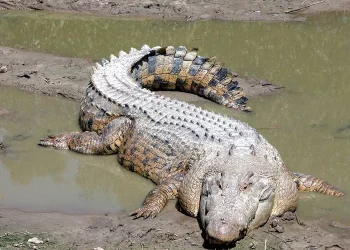Marine biology is a fascinating field that allows researchers to study the diverse ecosystems and life forms that inhabit our oceans. Pursuing a degree in marine biology opens doors to exciting career opportunities in conservation, research, education, and more. In the USA, several universities stand out for their exceptional marine biology programs, offering students world-class education, cutting-edge research facilities, and opportunities for hands-on experience. In this article, we’ll delve into the top universities for marine biology in the USA, highlighting their programs, faculty, research opportunities, and unique features.
Top 10 Universities for Marine Biology in the USA
1. University of California, San Diego (Scripps Institution of Oceanography)
Overview
The Scripps Institution of Oceanography at the University of California, San Diego, is renowned worldwide for its excellence in marine science research and education. Established in 1903, Scripps boasts a rich history of groundbreaking discoveries and contributions to our understanding of the oceans.
Program Highlights
Comprehensive undergraduate and graduate programs in marine biology.
Access to cutting-edge research facilities, including research vessels, laboratories, and oceanographic instruments.
Opportunities for fieldwork and hands-on research experiences.
Collaboration with leading scientists and institutions worldwide.
Faculty
Scripps Institution of Oceanography is home to a diverse and distinguished faculty of marine scientists, including experts in oceanography, marine biology, climate science, and more.
Research Opportunities
Students at Scripps have the opportunity to engage in groundbreaking research across a wide range of marine science disciplines, from marine ecology and conservation to oceanography and climate change.
See Also: Top 10 Agriculture Universities in the USA
2. Harvard University (Department of Organismic and Evolutionary Biology)
Overview
Harvard University’s Department of Organismic and Evolutionary Biology (OEB) offers a rigorous and interdisciplinary approach to the study of marine biology. With access to world-class faculty and resources, students at Harvard can delve into the complexities of marine ecosystems and evolutionary processes.
Program Highlights
Interdisciplinary curriculum covering marine ecology, evolution, genetics, and more.
Opportunities for fieldwork and research expeditions around the world.
Collaboration with other departments and research institutions.
Access to Harvard’s extensive library and research facilities.
Faculty
The faculty at Harvard’s Department of OEB includes leading experts in marine biology, ecology, evolutionary biology, and related fields, offering students unparalleled mentorship and guidance.
Research Opportunities
Students have the opportunity to conduct research alongside faculty members on a wide range of topics, from coral reef ecology to marine mammal behavior and conservation.
3. University of Washington (School of Aquatic and Fishery Sciences)
Overview
The University of Washington’s School of Aquatic and Fishery Sciences (SAFS) is a world-renowned center for marine and aquatic research, offering comprehensive programs in marine biology, fisheries, and aquatic conservation.
Program Highlights
Diverse undergraduate and graduate programs in marine biology and related fields.
Access to state-of-the-art research facilities, including laboratories, field stations, and vessels.
Opportunities for internships, fieldwork, and research experiences.
Collaboration with government agencies, NGOs, and industry partners.
Faculty
SAFS faculty members are leading experts in marine biology, fisheries science, aquatic ecology, and related disciplines, providing students with valuable insights and mentorship.
Research Opportunities
Students at SAFS have the opportunity to engage in cutting-edge research on topics such as marine ecology, fisheries management, oceanography, and climate change impacts on marine ecosystems.
4. Stanford University (Hopkins Marine Station)
Overview
Stanford University’s Hopkins Marine Station is a premier research facility dedicated to the study of marine biology and oceanography. Located in Monterey, California, Hopkins offers students access to diverse marine habitats and research opportunities.
Program Highlights
Undergraduate and graduate programs in marine biology and marine science.
Access to world-class research facilities, including laboratories, experimental tanks, and research vessels.
Opportunities for fieldwork, internships, and research projects.
Collaboration with faculty members and researchers from Stanford’s main campus.
Faculty
The faculty at Hopkins Marine Station are leading experts in marine biology, oceanography, marine ecology, and related fields, offering students mentorship and guidance in their academic and research pursuits.
Research Opportunities
Students have the opportunity to conduct research on a wide range of topics, from marine biodiversity and conservation to marine chemistry, physiology, and evolution.
5. University of California, Santa Barbara (Marine Science Institute)
Overview
The Marine Science Institute (MSI) at the University of California, Santa Barbara, is a leading center for marine research and education. With its coastal location and state-of-the-art facilities, MSI offers students unparalleled opportunities to study marine biology and oceanography.
Program Highlights
Undergraduate and graduate programs in marine biology, oceanography, and marine science.
Access to cutting-edge research facilities, including laboratories, research vessels, and field stations.
Opportunities for fieldwork, internships, and research experiences.
Collaboration with faculty members and researchers from diverse disciplines.
Faculty
The faculty at MSI are renowned for their expertise in marine biology, oceanography, marine ecology, and related fields, providing students with valuable mentorship and guidance.
Research Opportunities
Students have the opportunity to engage in hands-on research on a wide range of topics, including marine ecology, marine conservation, oceanography, and climate change impacts on marine ecosystems.
6. University of Miami (Rosenstiel School of Marine and Atmospheric Science)
Overview
The Rosenstiel School of Marine and Atmospheric Science (RSMAS) at the University of Miami is a leading institution for marine and atmospheric research and education. With its tropical location and world-class facilities, RSMAS offers students unique opportunities to study marine biology in diverse ecosystems.
Program Highlights
Undergraduate and graduate programs in marine biology, marine science, and marine affairs.
Access to state-of-the-art research facilities, including laboratories, research vessels, and field stations.
Opportunities for fieldwork, internships, and research experiences.
Collaboration with faculty members and researchers from diverse disciplines.
Faculty
The faculty at RSMAS are leading experts in marine biology, oceanography, marine ecology, and related fields, offering students mentorship and guidance in their academic and research pursuits.
Research Opportunities
Students have the opportunity to engage in cutting-edge research on a wide range of topics, including coral reef ecology, marine conservation, oceanography, and climate change impacts on marine ecosystems.
7. University of Hawai’i at Mānoa (School of Ocean and Earth Science and Technology)
Overview
The School of Ocean and Earth Science and Technology (SOEST) at the University of Hawai’i at Mānoa is a premier center for marine and earth science research and education. With its location in the Pacific Ocean, SOEST offers students unique opportunities to study marine biology in diverse marine ecosystems.
Program Highlights
Undergraduate and graduate programs in marine biology, oceanography, and marine science.
Access to state-of-the-art research facilities, including laboratories, research vessels, and field stations.
Opportunities for fieldwork, internships, and research experiences.
Collaboration with faculty members and researchers from diverse disciplines.
Faculty
The faculty at SOEST are leading experts in marine biology, oceanography, marine ecology, and related fields, providing students with mentorship and guidance in their academic and research pursuits.
Research Opportunities
Students have the opportunity to engage in hands-on research on a wide range of topics, including marine biodiversity, marine conservation, coral reef ecology, and oceanography.
8. University of California, Berkeley (Department of Integrative Biology)
Overview
The Department of Integrative Biology at the University of California, Berkeley, offers comprehensive programs in marine biology and ecology. With its strong emphasis on interdisciplinary research and collaboration, Berkeley provides students with a well-rounded education in marine science.
Program Highlights
Undergraduate and graduate programs in marine biology, ecology, and evolutionary biology.
Access to cutting-edge research facilities and laboratories.
Opportunities for fieldwork, internships, and research experiences.
Collaboration with faculty members and researchers from diverse disciplines.
Faculty
The faculty in the Department of Integrative Biology are leading experts in marine biology, ecology, evolutionary biology, and related fields, offering students mentorship and guidance in their academic and research pursuits.
Research Opportunities
Students have the opportunity to engage in hands-on research on a wide range of topics, including marine ecology, marine conservation, evolutionary biology, and behavior.
9. University of Florida (Florida Museum of Natural History)
Overview
The Florida Museum of Natural History at the University of Florida is a premier institution for marine and natural history research and education. With its extensive collections, research facilities, and field stations, the museum offers students unique opportunities to study marine biology and biodiversity.
Program Highlights
Undergraduate and graduate programs in marine biology, ecology, and natural history.
Access to extensive research collections and laboratories.
Opportunities for fieldwork, internships, and research experiences.
Collaboration with faculty members and researchers from diverse disciplines.
Faculty
The faculty at the Florida Museum of Natural History are leading experts in marine biology, ecology, biodiversity, and conservation, providing students with mentorship and guidance in their academic and research pursuits.
Research Opportunities
Students have the opportunity to engage in hands-on research on a wide range of topics, including marine biodiversity, marine conservation, ecology, and evolutionary biology.
10. University of Southern California (Department of Biological Sciences)
Overview
The Department of Biological Sciences at the University of Southern California (USC) offers comprehensive programs in marine biology and ecology. With its strong emphasis on interdisciplinary research and collaboration, USC provides students with a well-rounded education in marine science.
Program Highlights
Undergraduate and graduate programs in marine biology, ecology, and biological sciences.
Access to cutting-edge research facilities and laboratories.
Opportunities for fieldwork, internships, and research experiences.
Collaboration with faculty members and researchers from diverse disciplines.
Faculty
The faculty in the Department of Biological Sciences are leading experts in marine biology, ecology, evolutionary biology, and related fields, offering students mentorship and guidance in their academic and research pursuits.
Research Opportunities
Students have the opportunity to engage in hands-on research on a wide range of topics, including marine ecology, marine conservation, evolutionary biology, and behavior.
See Also: Top 10 Best Universities for Psychiatry in the USA
Conclusion
Choosing the right university for studying marine biology is essential for aspiring marine biologists. The universities listed above offer exceptional programs, faculty, and research opportunities for students interested in exploring the wonders of the ocean. Whether you’re interested in marine ecology, conservation, or oceanography, these institutions provide the resources and support needed to succeed in the field of marine biology. With their strong emphasis on interdisciplinary research and hands-on learning, students can gain valuable skills and experience to make a positive impact on our oceans and planet.
You Might Be Interested In:



























